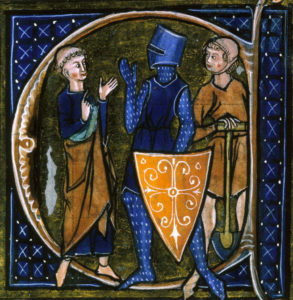
There was a time when the role of Congresses and Parliaments was not to come up with massive programs or interfere in the lives of the people. Rather their function was to judge the merit of cases and provide simple solutions to the problems of daily life. Those were simpler times but they reflected a Christian order long lost.
In his recent book, Before Church and State: A Study of Social Order in the Sacramental Kingdom of St. Louis IX, historian Andrew Willard Jones recounts many cases of how ordinary people in medieval France could have recourse to Parliament to obtain their rights in cases of conflict. He tells of the arguments and procedures employed by the chamber whether the case be great or small. Parliament would often rule as to “who had a right to the trees that fell in a certain wood, or who had the right to pasture their pigs in a certain field in June and in August.”
Thus, for example, there is the picturesque case of the peasants of a certain village who cut down dead trees for firewood every spring at a nearby forest. When a local knight guarding the forest stopped them and took their carts laden with wood, the villagers protested. From time immemorial, they objected, they had taken firewood from this forest. The knight replied that they had always taken one cart of wood not the two they were then taking.
[like url=https://www.facebook.com/ReturnToOrder.org]
The villagers took their case to Parliament. An inquest was carried out and Parliament found that over the course of the previous forty years, the peasants had usually taken one cart and sometimes two. Parliament promptly declared the knight acted wrongly and ordered him to make amends.
This is how hundreds of thousands of people engaged in their activities and transactions in those times. When conflict arose, officials looked to the customs of the people and sought to find original solutions based on what had always been done. “All of these activities,” writes Dr. Jones, “the way the population went about all its business, constituted the society’s order, known as “the peace.”


